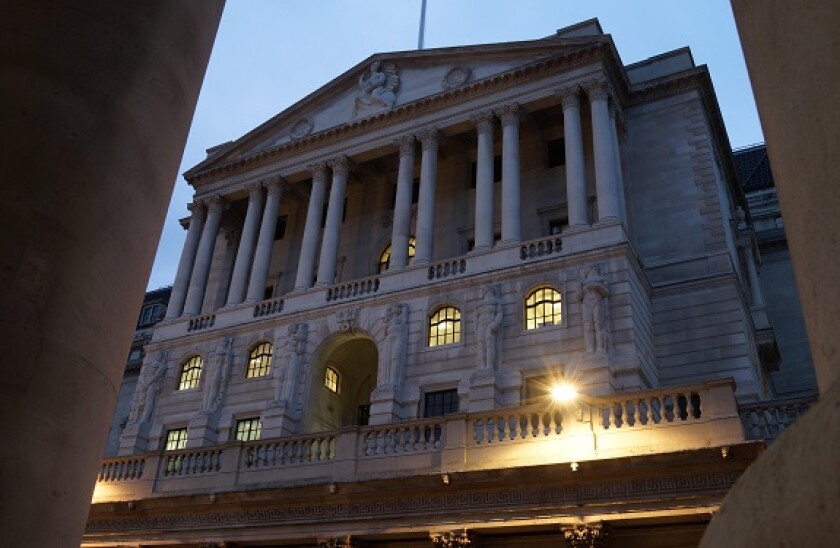Annual investment of $3tr-$7tr is required to transition to a zero carbon global economy, yet the entire stock of green bonds stands at just $1.2tr, a tiny fraction of the entire global stock of debt capital market issuance of $100tr.
This pitiful investment was described by Michael Sheren, a senior adviser at the Bank of England, as “a rounding error, it's nothing”.
Sheren was delivering a keynote address at the Global ABS conference in Barcelona on Wednesday.
He said the transition to zero carbon offered a tremendous opportunity, but warned that the risk of not transitioning was “catastrophic”, noting that some of these risks were already starting to happen.
Securitization can play an essential role in this transition, said Sheren, who was speaking in a personal capacity. “Banks cannot afford to keep assets on balance sheet, they need velocity," he said. "They need to finance this with new capital and finance more.”
Sheren stated that the “old paradigm” of banks holding lots of capital and assets on their balance sheets was unlikely to generate the quantum of investment needed.
“There needs to be velocity of capital and the way for that to happen is with true sales.”
Robust structures
Bank lenders could therefore originate “safe, steady, reliable assets” before financing them in the debt capital markets with securitization.
Referring to a report published by Standard Chartered, Sheren said emerging markets would need to invest $96tr by 2060 and he believed that “a huge piece of this can be financed through securitizations”.
Despite the dreadful impact of the war in Ukraine, supply chain disruption, inflation and prospective rate hikes, Sheren said it was ”absolutely essential” for bankers to take a medium to long term view and develop securitized products that would help transition the global economy.
He highlighted a couple of examples of key developments taking place in the UK.
By 2030 it will be illegal to sell a new car with an internal combustion engine. The solution to finance this transition, which is happening more quickly than many expected, will “really be about securitization”.
If structured correctly, the product can be incredibly robust. However, Sheren was clearly concerned about the residual value of vehicles with combustion engines and asked whether these should any longer be considered “par products”.
In other words, investors of car finance ABS deals secured on combustion engine vehicles should be asking whether they will get all their money returned as the countdown to 2030 draws closer.
The residual value element of car receivable ABS is critical to the valuation of a deal. When Sheren had worked at GE Capital, he said, the company made a residual value miscalculation which “absolutely wiped out 10 years of profit”.
He said that in this case, developments would be shaped by the global trend for transitioning towards net zero carbon emissions. As such, it was critical for issuers and investors to consider the risks present today and structure deals correctly to fully take account of the expected transition.
Sheren also drew attention to the urgent need for homeowners to finance investment in heat pumps and insulation, describing UK homes as “very expensive, draft-leaking tents”.







